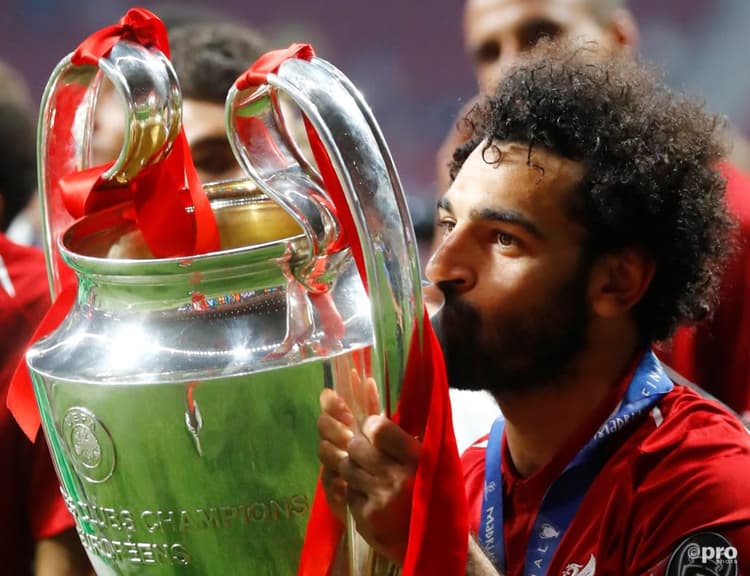How much money will Barcelona lose after Champions League exit?

Barcelona are out of the Champions League.
Inter's victory over Viktoria Plzen on Wednesday evening means that the Blaugrana were humiliatingly dumped out of the Champions League in the group stages.
It is a financial disaster for the Blaugrana.
During the 2022/23 summer window they bet big on their financial future as they sold off a host of assets - as well as shares in their television revenue.
Despite being €1.4 billion in debt, Barcelona still splashed the cash in the transfer market as a result of these financial moves. They essentially used financial levers to ensure they could afford to sign the likes of Jules Kounde, Robert Lewandowski and Raphinha.
It was a gamble and was reliant on Barca at the very least making it to the latter stages of the Champions League every season.
They are now out.
So how much do Barca stand to lose financially from their exit?
Well, the UEFA Champions League remains the most prestigious competition in club football and one that every team wants to win.
However, while the glory of victory is immense, it is also a vital financial factor for the biggest clubs in the tournament right down to those from less prominent footballing nations.
For teams outside of the big five leagues in Europe, emerging through qualifying and reaching the lucrative group stage can be as significant as changing their future or ensuring their survival as a club.
How much prize money do teams make or lose out on depending on whether they play Champions League football during the season?
FootballTransfers have listed all the key details.
Champions League: Prize money for winners and teams
Champions League prize money naturally increases with every round a team progresses in the tournament.
The initial lucrative achievement is reaching the group stage, which currently guarantees teams €15.64 million each.
If you progress from the group stage then additional prize money accumulates each round, meaning the deeper you go into the tournament, the more money you'll make.
Winning the competition can be worth up to a huge €85.1m in prize money. It is a total that includes match win bonuses in addition to the round-by-round figures listed in the table below.
The winners will in fact earn even more than that once television income is factored in.
And there is further cash on offer for reaching the following year’s UEFA Super Cup, with €4.5m going to the eventual winner of that trophy and €3.5m for the runners-up.
| Position | Prize money |
| Winners | €20m |
| Runners-up | €15.5m |
| Semi-finals | €12.5m |
| Quarter-finals | €10.6m |
| Round of 16 | €9.6m |
| Group stage | €15.64m |
| Third qualifying round | €480k |
| Second qualifying round | €380k |
| First qualifying round | €280k |
| Preliminary round | €230k |
How much is each Champions League win worth?
As well as those amounts paid out per round advanced, further riches are available in the group stages.
Every victory lands a team €2.8m while a draw will even land them a handy €930,000.
So, a team who reaches the Champions League group stages and wins all six group-stage matches will have already earned €42m in round-by-round and match bonuses without having won a match in the knockout stage.
That is made up of the guaranteed €15.64m as a group participant, then €16.8m in win bonuses and €9.6m for reaching the last 16.
In terms of one-off ties, winning a Champions League semi-final is hugely valuable.
It guarantees you a further €15.5m, or €20m if you go on to win the competition.
Market pool: How does it affect Champions League earnings?
The number of wins you have and the round you reach is key to Champions League riches.
But those are not the only factors which determine total Champions League earnings for clubs.
For example, Bayern earned €130m in total (including television revenue) for winning the trophy in 2020. Liverpool’s total the year before was lower at around €111m.
The market pool is a concept which ensures clubs from countries with the most lucrative television deals are handsomely rewarded for boosting UEFA’s funds.
A portion of each country’s money is then split between all the teams from that nation in the competition. So, if five Premier League teams were to make it, the slices on offer would be smaller for those English clubs compared to a year with the usual four.
Market pool: Winners do not always make the most

It is not an even split either. UEFA are keen for the league positions from each division to be factored into the calculations.
It meant that in 2019, the two finalists from England – Liverpool and Tottenham – actually received less in TV market pool money than quarter-finalists Man City and Man Utd.
That is because City and Man Utd had finished first and second in the Premier League the year before.
They took home €21.2m and €17.8m respectively. Meanwhile, runners-up Spurs – who had finished third in the Premier League – got €16.6m. European champions Liverpool got just €13.1m in their share as they had reached the competition after finishing fourth in the English top flight.
But, how far other teams from your country progress is also part of the formula. Barcelona did extremely well financially as semi-finalists in 2019, banking more than Liverpool.
That was because other Spanish teams did not go far. Barca were the only La Liga side to progress past the first knockout round.
For fans hoping their club can maximise income, the biggest market pool pay-outs will go to teams from the most lucrative TV markets who have won their domestic league the previous season when the other teams from their country do not reach the UCL latter stages.
For nations where fewer teams qualify for the Champions League, it can make a huge difference if just one or two teams from that country reach the tournament proper.
That means the TV market pool for that nation is split between fewer teams, significantly boosting their pay-out.
UEFA Coefficient: How does it affect Champions League earnings?
While some of Europe’s top clubs expressed their dissatisfaction with UEFA amid the Super League saga in 2021, there are already some parts of the system which work in their favour.
The upcoming changes to the competition from 2024 are big, with 36 entering at the group stage rather than the current 32. However, proposals to enable teams with lucrative European pasts to qualify for the tournament if they missed out domestically have been scrapped.

However, the UEFA Coefficient system already helps boost the finances of top clubs as results from the previous 10 years in Europe dictates how well teams rank in the Coefficient.
The higher you are ranked, the bigger amount of guaranteed money you get as a share of that season’s Champions League prize pool.
Those amounts are set out and paid regardless of how well you play in the tournament.
For instance, in the 2020/21 season, Real Madrid (€35.5m), Bayern Munich (€34.3m) and Barcelona (€33.2m) received the biggest amounts due to their positions in the UEFA standings.
That fell to €25.5m by the time you reached Manchester City in 10th position in the Coefficient.
It is a position Pep Guardiola’s team improved upon significantly given they reached the 2021 final – and it comes with a financial benefit.
There is an even bigger difference by the time you reach the bottom of the list.
In the 2020-21 season, the lowest ranked side Ferencvaros only received a payment of around €1m under this system.
How much will a team lose from failing to qualify?
It is estimated that Juventus earned €790m between 2012 and 2021 purely from Champions League participation and ticket sales.
In 2020/21, despite a disappointing campaign that saw them eliminated by Porto in the last 16, they still earned just under €40m in prize money. They were knocked out in the same stage by Villarreal in the 2021/22 edition.
Juventus also had a Coefficient payment of around €30m and they received a further payment via the Italian TV market pool.
This is why it was so crucial they qualified for the 2021/22 and 2022/23 Champions Leagues. They may have been knocked out by Villarreal at the last-16 stage in the 2021/22 tournament, but Juve had already earned plenty of extra money by that stage.
As well as missing out on direct funds through prize money, TV money and Coefficient-linked payments, failing to reach the Champions League has a commercial impact too.
The loss of prestige is significant and there is less value to a company if the team they are associated with are not successful enough to reach the top competition.
In addition, the team in question would no longer be playing in the biggest matches with the highest viewing figures.

The lucrative 10-year deal Man Utd struck with Adidas in 2014 is a good example.
A clause is built in where Adidas can pay significantly less to United if they are not in the Champions League, which is the case for the 2022/23 season.
There are many other deals like that between clubs and shirt sponsors.
It is also prominent with other commercial partners and is similar even when it comes to the value of stadium naming rights.
Fewer matches mean lower gate receipts for teams as well, so the Champions League impacts many financial areas.
That is why it's crucial for teams to qualify for the competition in order to stay competitive in their domestic leagues and makes the battle to finish in a Champions League spot even more intriguing.
The Premier League and the Bundesliga are two examples of this with several teams in the running for the top four every year.
Coronavirus adds to impact
The coronavirus pandemic also means the impact of missing out on Champions League football is greater than ever before.
Barcelona, Real Madrid and Juventus are among the top European clubs nursing huge debts. Barca were reported to be €1.4 billion in debt at the end of 2021/22. Juventus posted losses of a quarter of a billion euros for the 2022 financial year.
So, losing Champions League football and the prize money that comes with it is even more painful than it would be already.
It also has an impact on persuading players to join too as most of the top stars in world football are motivated by playing in the biggest competitions.
So, while top clubs may still try to tempt signings with big wage packets, without Champions League football to offer the club in question usually becomes significantly less appealing.
Without signing the best players, a team once again becomes at risk of failing to qualify for the competition and the cycle continues.





















